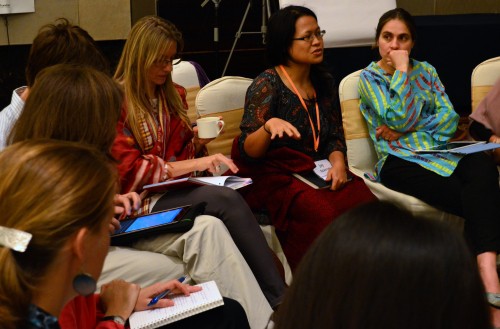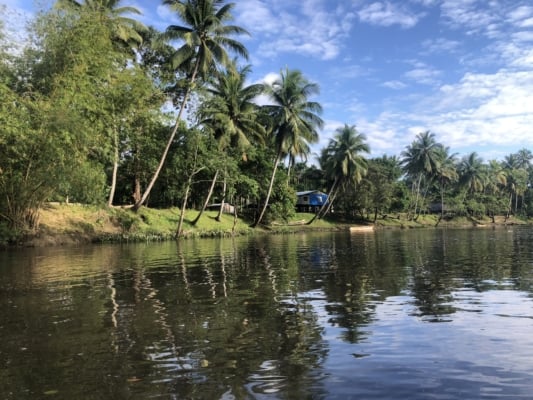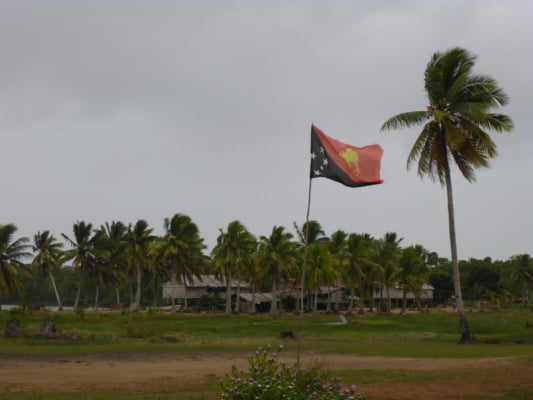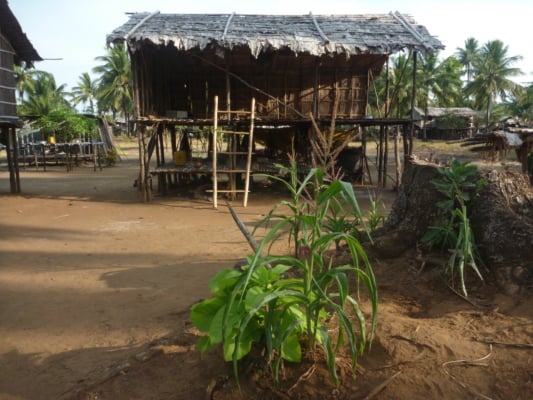Image: Joy Aceron from Ateneo school of Government shares thoughts on the role of citizens in transparency and accountability efforts.
How can the impact of transparency and accountability work be deepened? This was the question at the heart of a recent gathering of more than 60 people working on T/A issues across the board – staff members of donor agencies, researchers and practitioners.
Strengthening and incentivising learning, broadening understanding of ‘impact’, and working politically to produce change were just some of the issues raised.
The forum? A four-day workshop in Jakarta hosted by the TALEARN community of practice.
TALEARN creates spaces for collective learning and action on T/A challenges, practices, innovations and impact, and the workshop structure itself was designed to create those spaces. For example, it included small group reflections, a marketplace for knowledge and innovation, and case clinics with local Civil Society Organisations.
The event’s flexible framework and diversity of participants catalysed rich and honest conversations about challenges related to learning, incentives, impact and change.
Both donors and practitioners expressed a strong interest in strengthening the learning capacities of CSOs.
Rakesh Rajani is the founder of Twaweza, an East African CSO. Every organisation needs a strategic vision and a culture of learning, he told fellow participants; CSOs need to redefine their relationship with donors rather than spending their time chasing whatever money they can find. Writing many reports for multiple donors undermines CSOs’ ‘strategic coherence’ and absorbs the valuable time of key staff. Instead, CSOs need to set out their strategy, find donors who understand their vision, and focus on evidence, results and learning.
Learning should not be conflated with research and evaluation, some participants cautioned. Learning organisations do more than just perform research (or have research performed on them); they build analytical capacity and a culture of critical inquiry, and they generate evidence that helps them navigate their context and test the assumptions in their theories of change.
Participants acknowledged that donor relationships play a significant role in incentivising and strengthening learning, or in inhibiting it. Some participants wondered how to produce evidence that both improves practice and meets the needs of funders for monitoring, evaluation, and reporting. Especially when dealing with multiple donors. And – often – short-term funding. Others asked if funders should just ‘get out of the way’ and let learning happen.
Participants wanted better tools for understanding what is working and how to learn from their efforts. They discussed the narrow definitions of impact (and the limited set of tools available to measure success) that do not pick up the small wins, the stories of change, and the intermediate steps in the long and complex journey to more responsive governance. They recognised that a broader conversation is needed about how to define success and impact, and how to measure them.
Discussions about how change happens, and how to think and work politically, sprang from a challenge to the prevailing paradigm in the T/A sector. Why, some asked, were social change processes so often ‘projectised’ and ‘NGO-ised’? Why the narrow focus on professional NGOs working on donor-funded projects? What about a wider consideration of the diverse organisations and citizens’ movements struggling for a more just, equitable and democratic society?
Some participants commented that the ‘gold standard’ for impact evaluation of randomised control trials may influence the kind of approaches that donors fund. It might make them view projects and interventions with defined boundaries more favourably than broader campaigns or movements that might be engaged in more explicitly political approaches.
In all, many good ideas, innovative approaches, and lessons from experience were shared at this workshop. Take a look at a few more here: approaches to political analysis, innovative learning practices at the grassroots level, and unpacking context in social accountability.
Importantly, the workshop invited participants to think about how they might collaborate through the TALEARN community of practice to address the issues raised, and several working groups emerged to carry forward some of the proposals discussed.
The Transparency and Accountability Initiative will continue to support the community and to share more widely the learning generated by its members.










